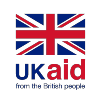From 17 to 29 May, the UN Special Rapporteur on Extreme Poverty and Human Rights, Olivier de Schutter, visited Bangladesh to assess efforts to combat poverty and to protect human rights in the country. As Lead Social Protection Manager of the CLARISSA project, I was invited to join a roundtable discussion on 24 May with other NGO representatives to share our experiences and early findings.
The roundtable’s key objective was exploring systemic and structural gaps in the legal framework. As well as this, the roundtable considered socio-economic policy measures for politically, economically, socially, ethnically, geographically, and culturally excluded and discriminated groups, including minorities, indigenous peoples, and age-based and gender-based discrimination. Read the Special Rapporteur’s report.
The CLARISSA Social Protection (SP) Intervention began in a slum area of Dhaka city in September 2020. After two and half years, this intervention has generated a significant number of evidence and learnings as well as a way forward.
First, it revealed that many families in Dhaka, especially in its informal settlements, were hit hard by the Covid-19 pandemic. They often lost their main source of income due to lockdown measures, undermining their resilience and deepening their indebtedness. This crisis was followed by price hikes and accompanied increases in the cost of living, further compounding the struggle to make ends meet.
In addition, urban poverty in Dhaka’s informal settlements is closely linked to household health crises and the unavailability of reliable, affordable treatment. Residents across the informal settlement we work in have consistently reported health shocks and associated expenditures as a major challenge to household sustainability. These challenges lead to cycles of indebtedness, and complex patterns of borrowing and repayment. Health vulnerabilities need to be understood as being at the heart of the endurance of poverty, and an essential challenge for anti-poverty and social protection strategies to address. Yet, social protection and health coverage in urban informal settlements are low.
In terms of system-level changing discussion, I focused on the limited number of social safety net schemes for urban slum dwellers, like widow allowance, which is available in rural areas, but urban area widows are not eligible. Another issue is the National Identification Card (NID). In order to claim an old age allowance from Dhaka, the aged person requires a valid NID card with an address in Dhaka, but urban slum dwellers mostly come from disaster-affected rural areas in Bangladesh. They are not permanent residents of Dhaka; presenting a key obstacle to claiming the old age allowance. Parents face a similar issue in completing their child’s birth registration certificate, which requires a NID with a Dhaka address.
The significant learning of this pilot is that long-term engagement with urban residents with a bottom-up, human needs-centric approach can help lower barriers to accessing existing schemes. This style of intervention can also create new initiatives to choose alternative decent work, build resilience to cope with sudden shocks and confidence to claim rights from duty bearers. The combination of universal and unconditional cash transfer as well as intensive need-based community support mechanisms is working very well to address the urban migrant low-income community’s well-being.
As a recommendation for eliminating urban poverty and attaining SDG goals, I emphasized the potential of universal basic income to reduce income inequality and access to opportunities for all. In addition, establishing a universal health insurance scheme or mechanism for all citizens, especially those focused on urban slum dwellers, might break the cycle of poverty.
